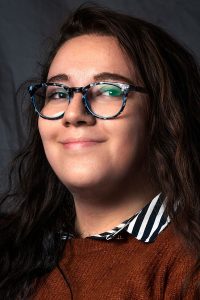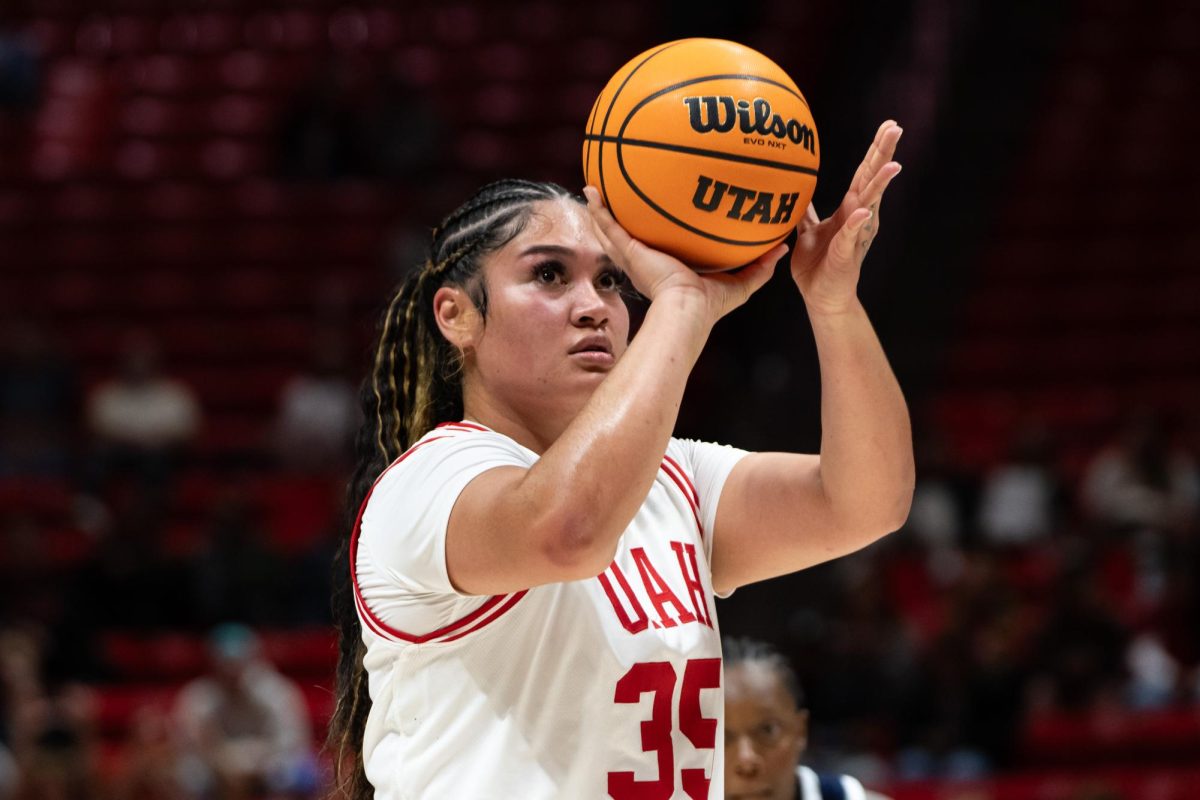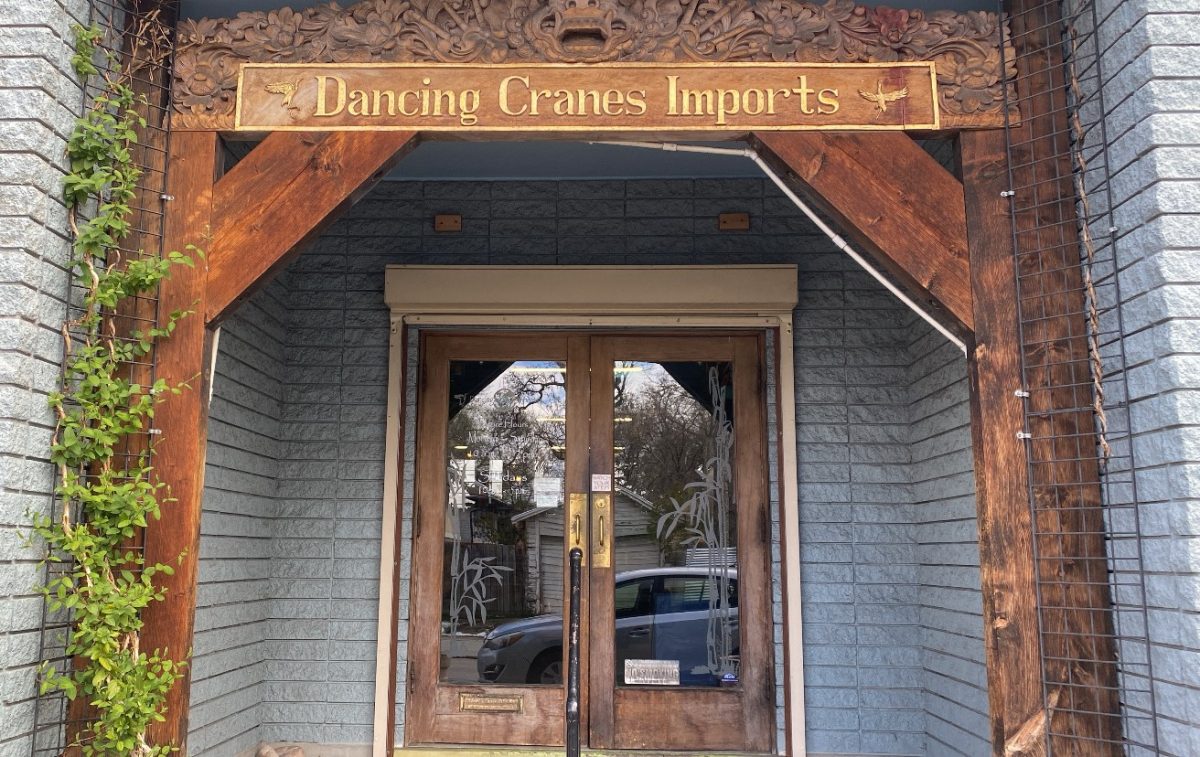LEAP and Block U Help Students Navigate the College Transition
The block U on campus on Feb. 2, 2021. (Photo by Jack Gambassi | The Daily Utah Chronicle)
May 5, 2020
Freshmen year is a time of change and growth for many students, and the University of Utah introduced the LEAP and Block U programs, in 1994 and 2013 respectively, to help guide students through their stress-laden first year as college students.
LEAP
Dr. Marissa Diener, the director of the U’s LEAP program, took over the program three years ago, after working for the school for over 20 years in the family and consumer sciences department.
“The reason I took this job was that I so strongly believe in what LEAP is trying to do for students,” she said, “LEAP is a program that supports student success at the U. We are a learning community. We offer everything from student mentors to program librarians.”
Diener said it has served to allow incoming students to get involved and participate in more personalized education. LEAP is a year-long learning community which comprises two three-credit courses, one in fall and one in spring, that are taken with the same students and professors. These classes typically fulfill general education requirements.
Diener said one of their more popular classes includes the health professionals LEAP program which can help fulfill a general education requirement for nursing, PA and pre-med students. Additionally, the program seeks to get students engaged in different programs throughout the university.
“I spend a lot of my time making and maintaining relationships with different programs on campus. We do all of that partnership work to help connect students all over campus.” Diener said.
LEAP was established to aid students in adjusting to life on a large campus with a lot of students. With the help of Diener and the rest of her staff, including student mentors, they continue to do that.
“Ultimately, I just want students to know how much this program can benefit them,” Diener said.
Last fall around 900 students participated in the LEAP program, and while it is targeted towards freshmen, the program is offered to all undergraduate students. According to Diener, some programs even require their students to take part in LEAP, primarily engineering programs. Diener said the way they are doing orientation is different this year, but they have a goal to reach more students this year.
“While there are a lot of reasons that a student may not participate in the program, I think there are a lot of students who may just not know about the program,” Diener said. “We have been going to orientations in the past, but students receive so much information during that period and some of the language we use may be confusing.”
Dr. Julie Metos, the associate dean of community engagement in the College of Health, expressed a similar attitude in regard to student numbers.
“Once students learn about the program, they are very excited about it … this year it will be featured in online orientation, so I hope students have more of an opportunity to learn more about it and sign up. We are striving to let high school students know more about it before they come to college,” Metos said.
In an effort to target the students, they will include a survey during the orientation modules to see if students would like to be connected with student mentors.
“Overall, we can get a lot more of our information online this year. Hopefully making us more accessible to students,” Diener said.
BLOCK U
Metos will be taking on a leadership role in Block U in the ‘20-21 school year. Metos has worked at the U for 15 years and directly with Block U for the past three years. Unlike LEAP, Block U is offered explicitly to freshmen.
In 2013, the U introduced the Block U program — Block U is a year-long general education program for first-year students. Students can pick a course of interest, such as work, wellness and the great outdoors, DaVinci, families and health, in addition to a few other courses. Students can take the course along with general education classes that fit with the theme of the core class.
“The core class is limited to 30 students, so everyone gets to know one another, which makes the campus feel smaller and more friendly,” Metos said in an email interview.
In speaking about the benefits, Metos said Block U students are more likely to graduate in four years. This can allow students to save money. Metos said students always say it helps them make friends that they value throughout college and it makes them know that people on campus care.
“Students say it is the very best way to meet general education requirements. Block U students get all their intellectual explorations done their first year and are ready to jump into their majors as sophomores,” Metos said.
Despite the program being tailored specifically to freshmen students, it is particularly useful for students who may want more career and major exploration.
“Among first-year students, I would recommend it for any student that is exploring their major. Maybe they have some ideas about a major but are not sure, or maybe they still are considering their options. Either way, it is a great way to explore and then pick a major by the end of freshmen year,” Metos said.
The program’s intentions are to make a large school seem smaller, more approachable and more personal.
“Our courses are nothing extra to students. In fact, the program helps students fulfill their general education requirements [sic] while offering additional resources to students. We like to emphasize the fact that our learning communities are tailored to the individual. The general education requirements [sic] you would be participating in will be specific to your desired program,” Diener said.
Metos said she finds that students get a lot out of the class and enjoy themselves while doing it.
“Block U is a lot of fun and also helps students develop skills for success in life … It’s super fun and lots of learning takes place. Students feel so accomplished at the end and everyone participates in the annual Block U Symposium to share their work,” Metos said.








